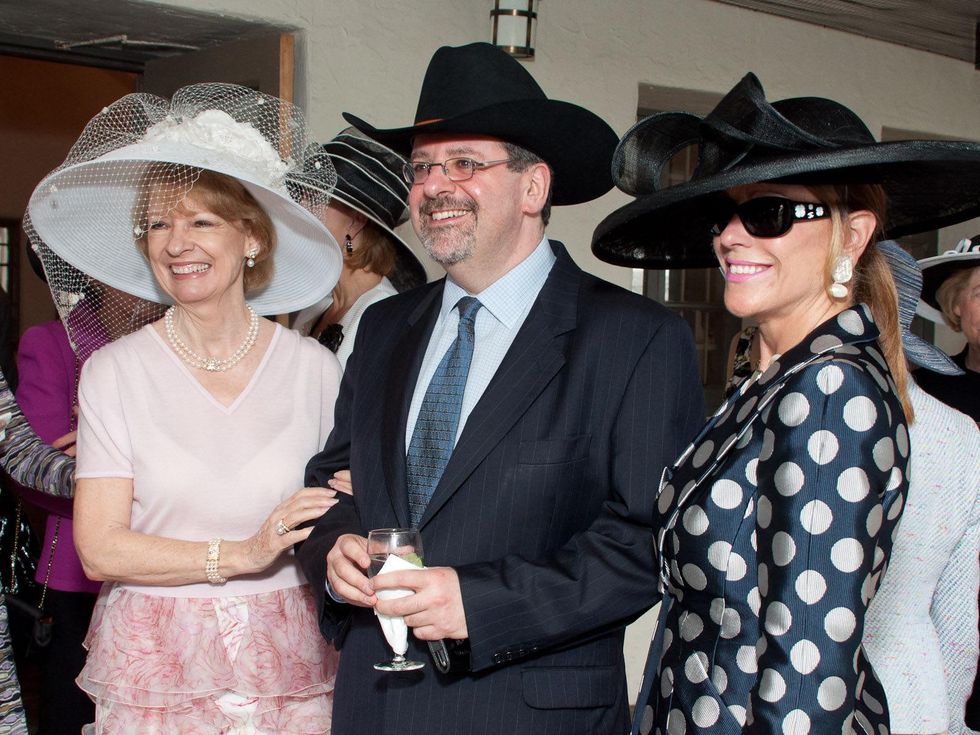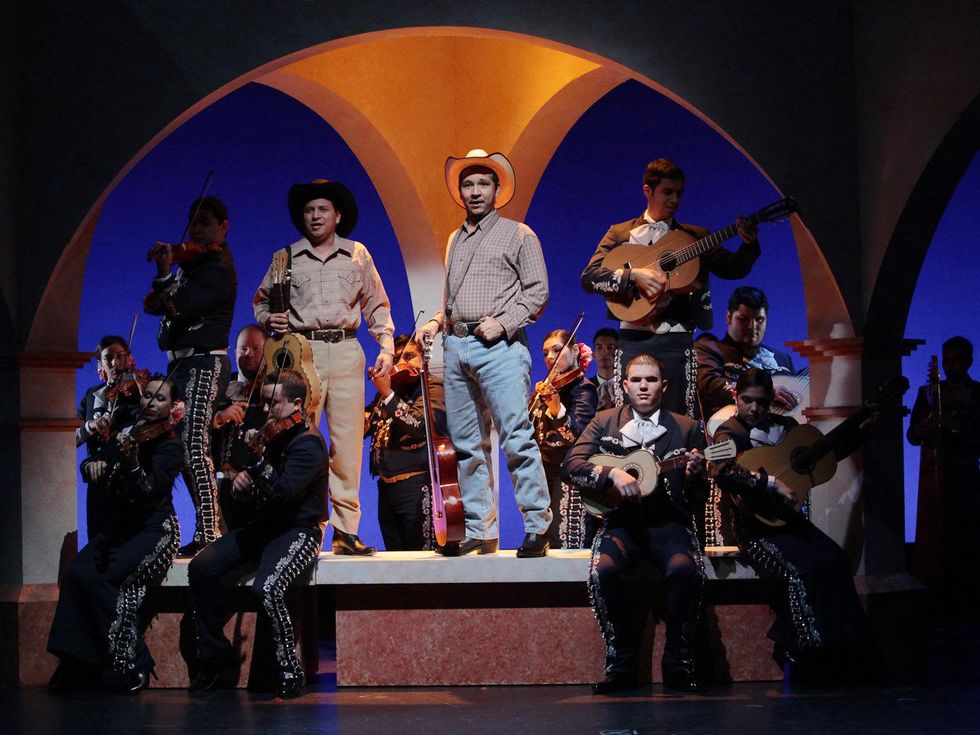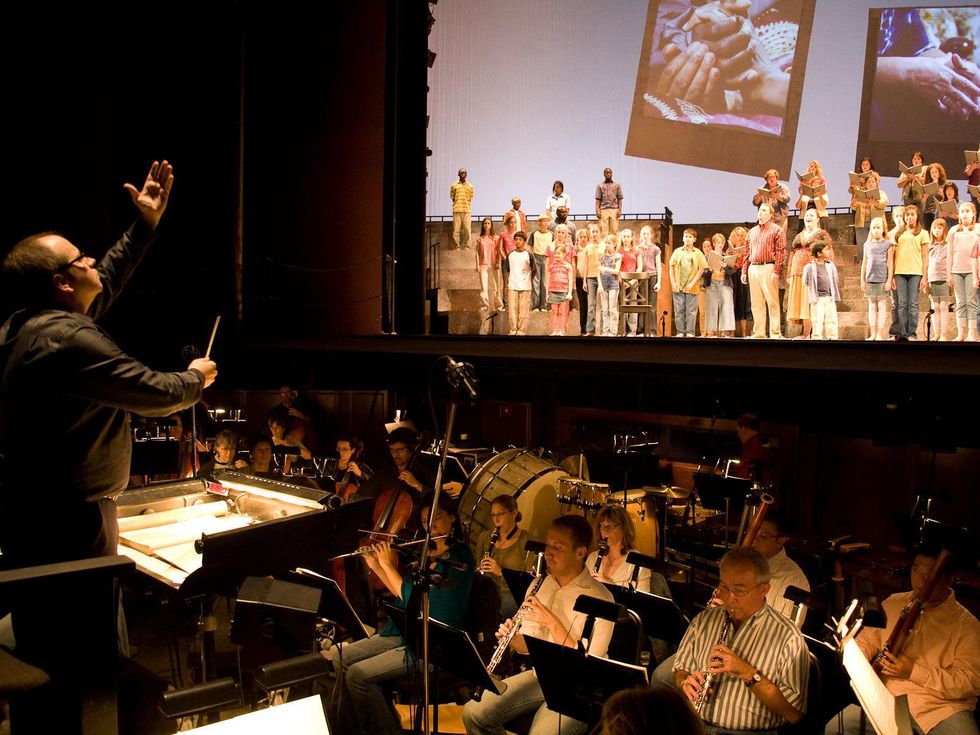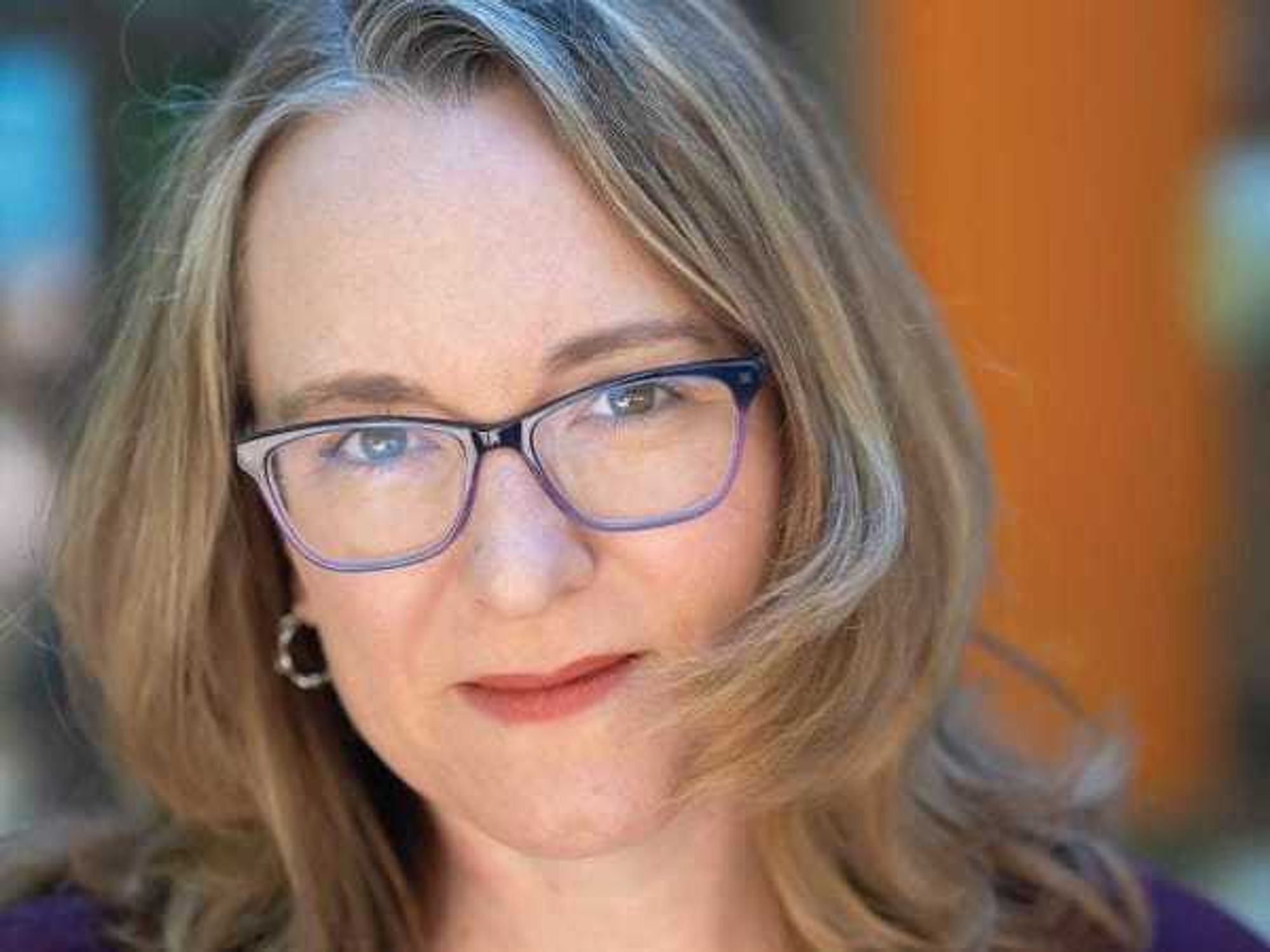Chicago bound
Redefining opera for the 21st century: Anthony Freud reflects on his stint at Houston Grand Opera
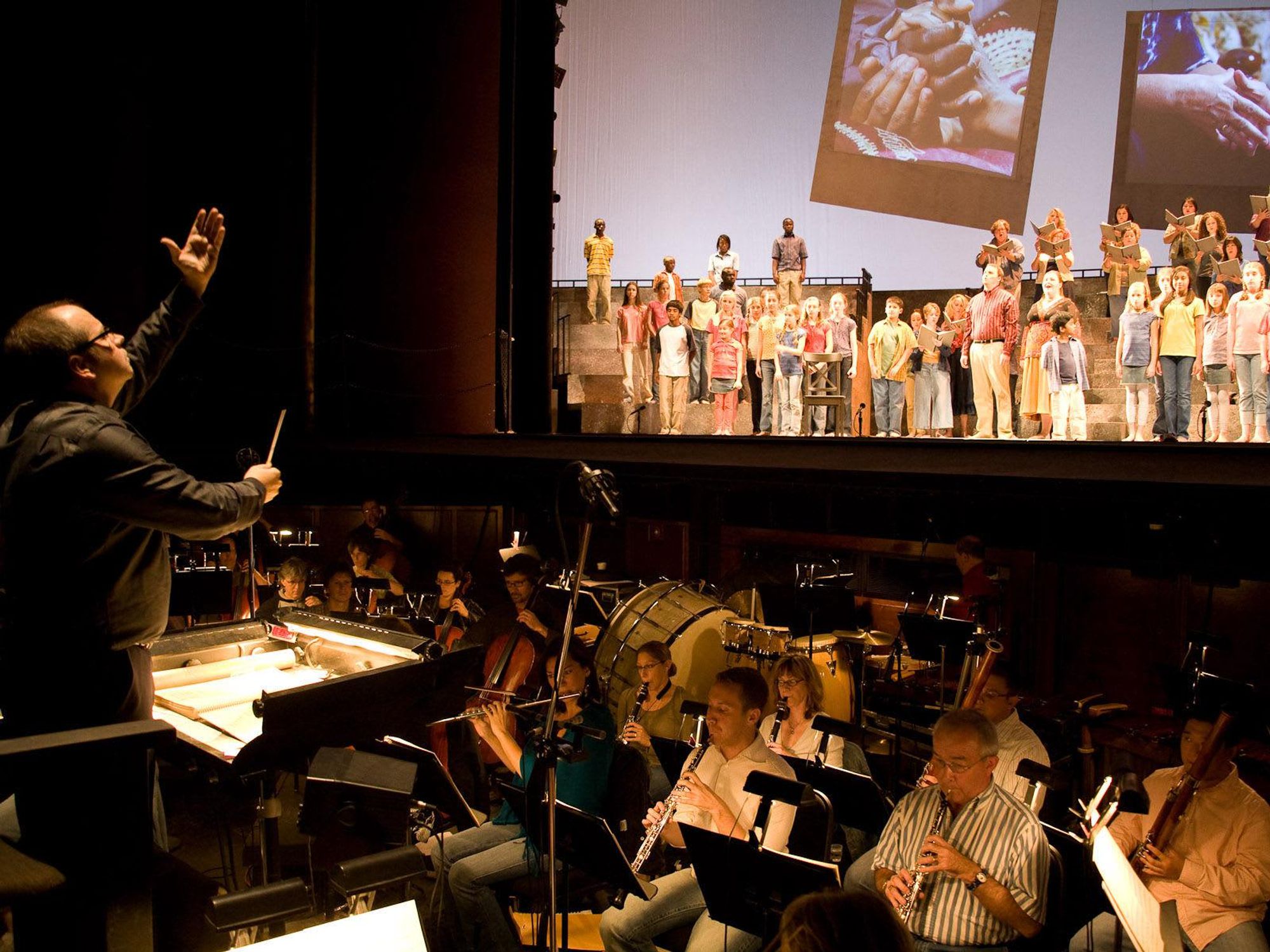
It's almost exactly six years ago that I was offered the job: general director of Houston Grand Opera. At the time, I had been general director of Welsh National Opera for 11 years and chairman of Opera Europa for three.
The idea of turning my life upside down and moving 5,000 miles to Texas appealed to me enormously. I love adventures, and the prospect of this move was energizing, motivating and inspiring.
But what would it be like? Everyone has an idea of Texas (The Alamo, the home state of the Presidents Bush, oil) and of Houston (the first word spoken from the moon, the biggest rodeo in the U.S., the energy capital of the western world, and, of course "…we have a problem"). How does closer acquaintance compare with the stereotypes?
As I move north to become general director of Lyric Opera of Chicago, I can assure any doubters that Houston defies most of the preconceptions that people from elsewhere have about it.
Houston is a vibrant, cosmopolitan, entrepreneurial, politically complex, enormous city, with large immigrant communities from all over the world. I read once in an airline magazine that there are only 29 countries in the world with GDP's bigger than Houston's economy. While the energy industry continues to dominate the Houston economy, the city has one of the world's largest and most important medical centers.
Houston Grand Opera is a real company of extraordinarily talented artists, technicians and administrators who have a tremendous sense of pride in the quality of the company's work and a rare and real feeling of common purpose. I have loved working with the company over the past six years. My close partnership with Patrick Summers, our remarkable music director, who has been appointed artistic director to succeed me, has been one of the great pleasures of my professional life.
We have worked hard to redefine how an opera company can provide a relevant, broad, and deep cultural service to a very un-European, very 21st century city.
We have broadened our repertoire with our multi-year Britten series and productions of many operas that most of our audiences have never seen before. New productions of standard repertoire have rejuvenated and enlarged our audience.
Our radical community engagement initiative, HGOco, has transformed the scale and demographic of our reach, and allowed our work to embrace diverse communities, the length and breadth of our city.
The Refuge, a large-scale new commission about immigration, was created in collaboration with seven immigrant communities. We also commissioned Cruzar la Cara de la Luna/To Cross the Face of the Moons, the world's first mariachi opera, and gave sold-out performances of it to very diverse audiences. Live recordings of both pieces have been released internationally on CD.
I had the ideas for both The Refuge and Cruzar soon after I moved to Houston, as I was immersing myself in the life and culture of my new home city.
At a dinner with some HGO patrons, I heard about a woman who had walked to Houston from El Salvador and who had "disappeared" into the city, with no papers or formal status. It occurred to me that the city was full of people, who, like me, had come there from elsewhere, both legally and illegally. A way for HGO to engage with immigrant communities could be for us to tell some stories, real individuals' experiences, of the extraordinary journeys that brought them to Houston.
We engaged Christopher Theofanidis, the award-winning composer, and Leah Lax, a wonderful Houston-based poet, who interviewed hundreds of people from seven immigrant communities. They selected a small number of remarkable stories, some tragic, some triumphant, and created The Refuge. We created a song of Houston: a spectacular tapestry in words and music about Houstonians.
Opera may be a 400-year-old European art form, but distilled down to its basics, it tells stories through words and music. That is utterly universal, transcending continents, centuries, and ethnicities. Suddenly, the work of HGO touched the lives of thousands of people for whom opera and opera companies had, up to that point, been irrelevant.
Opera may be a 400-year-old European art form, but distilled down to its basics, it tells stories through words and music. That is utterly universal, transcending continents, centuries, and ethnicities. Suddenly, the work of HGO touched the lives of thousands of people for whom opera and opera companies had, up to that point, been irrelevant.
Our mariachi project came about in a similarly unpredictable way. Houston has extremely large Hispanic communities from throughout Latin America. Although indigenously Mexican, mariachi is a tradition that resonates powerfully throughout much of Central and South America. It has a great following in Houston. It was new to me: mariachi isn't big in Wimbledon, where I grew up.
I attended a concert in our opera house in Houston by Mariachi Vargas de Tecalitlàn, who, I now know, are probably the world’s most famous and distinguished mariachi. I was blown away by this group of extraordinary, virtuosic musicians, and their emotional, powerfully immediate music, which seemed to me to be very operatic. Sitting in the opera house during the concert, I wondered why there had never been a mariachi opera. Opera and mariachi seemed to me to be a perfect match.
About two years later, we gave the world première of Cruzar la Cara de la Luna/To Cross the Face of the Moon, written by Pepe Martinez, the iconic music director of Mariachi Vargas; and Leonard Foglia, the distinguished theater and opera director. It told the story of an elderly Mexican-American man, living in Houston, whose U.S.-born family found out for the first time from the dying old man that he also had a family in Mexico, whom he had deserted 50 years earlier, when he moved to the U.S. under the Bracero (meaning “strong-arm”) migrant worker program (which enabled cheap labor to be imported legally into the U.S. during the 1960's). This was a family divided across countries, generations and cultures.
The piece explores what we mean by "home." Is home where you are born, where you live, or where you die? These are issues confronting millions of families around the U.S. and Cruzar resonated powerfully with audiences of diverse backgrounds, not just those from Mexican and Hispanic communities.
Is this a piece that could have an impact only in America? Clearly not: I am thrilled that HGO has been invited to give six performances of Cruzar in Paris in September, to open the new season at the Théâtre du Châtelet.
While a regular HGO main-stage season reaches about 70,000 people, HGOco, in its first three years of activity, has reached more than 600,000, transforming the level of cultural service we provide and redefining the identity of our audience.
In spite of living through the most turbulent economic storm in living memory, HGO has achieved consistently high ticket sales (94% of capacity in the season just ended), has raised more than $76 million in contributed income commitments, and, for the past two years, has achieved balanced budgets.
So has it all been smooth sailing? Not at all.
The economic instability has made income generation harder and harder. We have been working to buck a trend in Houston that undervalues the performing arts in comparison with other causes for large-scale philanthropic support.
We have weathered the economic storm as a result of a comparatively small number of extremely generous (and greatly appreciated) individuals, foundations and corporations, without whose support our success would have been impossible.
The HGO Endowment, an independently constituted non-profit company (a 501(c)3, in U.S. legal-speak), has invested consistently and generously in the implementation of our strategic plan, to ensure that the cuts that economic pressures forced us to make were controllable and allowed our reputation and popularity to grow.
We have fought hard and successfully to avoid descending down the spiral of decline, which beckons inexorably when cutbacks forced by falling income, generate even lower income, and, in turn, force further cutbacks.
We have proved that at HGO, making conservative choices, compromising quality, and reducing the range of activity, were not the best solutions. Above all, this support has allowed HGO to retain its ability to take responsible risk, the lifeblood of any performing-arts organization. We invested strongly in the quality of our work, in the belief that there is a priceless, though sometimes intangible, return on this investment. Our commitment to community engagement and education, so often early casualties of economic pressure, was steadfast and non-negotiable through this period.
I am enormously excited at the prospect of joining Lyric Opera of Chicago: a great company serving a great city. I can't wait to dive in and get started, and I am so looking forward to getting to know and working with my new colleagues. Lyric's extraordinary foundation of outstanding quality, audience support, and fiscal responsibility will allow us to respond with energy and imagination to the many opportunities and challenges ahead.
The piece explores what we mean by "home." Is home where you are born, where you live, or where you die? These are issues confronting millions of families around the U.S., and Cruzar resonated powerfully with audiences of diverse backgrounds, not just those from Mexican and Hispanic communities.
As I enter my fourth year as chairman of Opera America, I am all too aware of the challenges of these times for the opera sector as a whole. There have been a number of casualties in the economic hurricane of the past few years. Some companies have closed, and others are still foundering. But I remain steadfastly optimistic.
We are living through times of rapid change: cultural, social, economic, technological, and political. I believe that we, as opera companies, must understand and embrace the changing environments of our cities. We must evaluate our traditions, preserving those that we consider valuable and having the courage to abandon others.
Previously reliable assumptions may no longer provide us with safety nets. We can learn invaluable lessons from our colleague organizations, but must avoid the temptation to create generic opera companies serving generic cities. We must engage dynamically and proactively with our communities, thinking laterally and flexibly to maximize our relevance and the breadth and depth of our cultural service.
A commitment to excellence must be at the heart of everything we do.
I believe that opera and opera companies can and will evolve and thrive through the 21st century. But we must be on our mettle.
Anthony Freud wrote this piece for Opera Now before he moved to Chicago last month.
